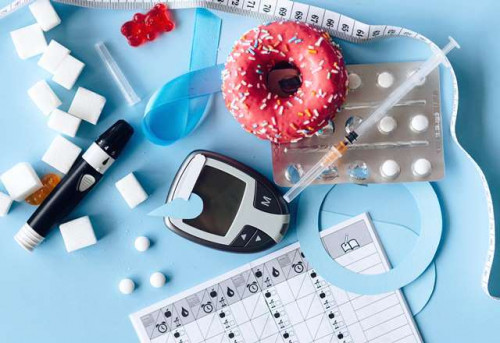Jakarta: The heart is one of the most vital organs for the continuation of human life. The main job of the heart is to pump blood throughout the body. Blood itself carries various chemical contents needed by the body such as oxygen and nutrients, one of which is sugar.
Blood sugar levels function as a source of energy so that our body can function properly. Sugar in the blood will go through a utilization process with the hormone insulin so that it can be converted into energy.
Dr. Bayushi Eka Putra, Sp.JP, FIHA, Heart and Blood Vessel Specialist from Eka Hospital BSD explained that with diabetes, the body can lose this ability, causing sugar levels that should be converted into energy to settle in the blood until sugar levels continue to increase. exceeds reasonable limits.
If that happens, the body can experience serious risks and complications if the cause is not immediately controlled and treated with medical treatment.
If so, what happens to the heart when someone has diabetes?
(The heart is one of the organs most at risk for complications in diabetes. Photo: Illustration/Doc. Unsplash.com)
It is known that high blood sugar levels will increase the risk of heart disease two to four times compared to healthy people.
This is what Dr. Bayushi occurs because sugar levels that settle in the blood can damage the lining of blood vessels and increase the risk of blood plaque forming which can block blood flow.
The formation of plaque in the blood vessels can trigger various Coronary Heart Diseases or CHD, namely heart disease caused by a lack of blood supply to the heart muscle due to blockage or narrowing of the coronary blood vessels due to damage or formation of plaque on the lining of the blood vessel walls.
Because of these risks, heart disease is also the most frequent cause of death in diabetes patients. Therefore, heart complications are the most risky thing in diabetes.
(TIN)
2023-11-09 14:05:00
#Diabetes #Impact #Heart


